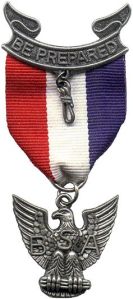 My mother insisted I learn how to type when I was in high school. Since I didn’t plan on becoming a secretary, I failed to see the necessity of the class. She assured me that no matter what field of study I ended up pursuing, I would never regret learning how to type. When I think about all the reports and papers I typed in high school, the subpoenas, notices, and letters I typed as an office manager of a court reporting firm, and the short stories, flash fiction, novels, and blog posts I type as a writer, well, I’m glad I listened to Mom.
My mother insisted I learn how to type when I was in high school. Since I didn’t plan on becoming a secretary, I failed to see the necessity of the class. She assured me that no matter what field of study I ended up pursuing, I would never regret learning how to type. When I think about all the reports and papers I typed in high school, the subpoenas, notices, and letters I typed as an office manager of a court reporting firm, and the short stories, flash fiction, novels, and blog posts I type as a writer, well, I’m glad I listened to Mom.
I learned on different models of electric typewriters in high school. They were very high tech at the time. The college I attended also used electric typewriters, but it wasn’t long into my education that the school transitioned to computers. Imagine how thrilled we students were. From that day forward, technology has progressed to the point where I’m now typing on a laptop. Things sure do change rapidly.
But one thing did not. My brain and fingers were trained to hit the space bar two times after any punctuation ending a sentence and after a colon. I’ve done it for thirty years, and no one ever said boo about it. Until recently.
It was pointed out to me that I needed to stop this practice. I failed to see the urgency of retraining my brain and fingers, so I continued to let the memory ingrained in my ten digits go about business as usual. Another person pointed out that my long-practiced habit may be viewed as a problem when submitting my work for publication.
I’m going to forgo my thoughts on how this minor detail could cause a major upset in the lives of those who would publish my writing and go straight to helping anyone who may still be placing the extra space after their punctuation. And in case you were wondering, the reason this has changed is because every letter among the fonts one can employee these days receives an appropriate amount of space negating the need for two spaces at the end of a sentence that used to improve readability. Below is an example of what I’m talking about.
 The monospaced font required the extra space. Proportional fonts do not.
The monospaced font required the extra space. Proportional fonts do not.
Correcting the problem is easy. If I can learn to retrain my fingers to hit the space bar once after punctuation, so can you. As for the documents you already have saved on your computer, there’s a quick fix for that, too.
Open your document
On the Home tab, in the Editing group, choose Replace. Or press Ctrl + H on your keyboard.
In the Find what box, type a period and two spaces
In the Replace with box, type a period and one space
Choose Find Next and click Replace All
Every instance of two spaces after a period will be corrected to only one space. The same steps can be used to remove the extra space after question marks, colons, and exclamation points.
I hope this was helpful to anyone out there who may still be placing two spaces after a period. In closing, let me say one small thing: yes, using two spaces after punctuation may reveal a person’s age, but that does not give anyone the right to point out what has now become an error with anything but tact and grace.








![IMG_20160607_085149863[1]](https://hlgibsonauthor.files.wordpress.com/2016/06/img_20160607_0851498631.jpg?w=300&h=169)